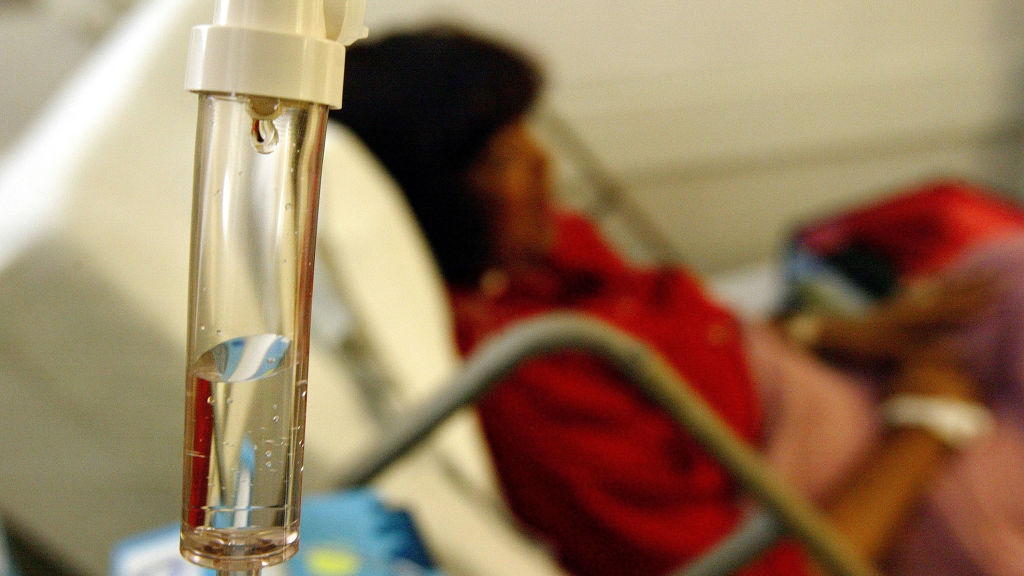
When a woman first learns she has breast cancer, her mind immediately floods with “what now?” questions as she grapples with how this disease will impact her life.
Unfortunately, Black women also have to ask themselves, “Will my racial heritage and ethnicity affect the care I receive and chances of survival?”
Despite advancements in oncology, a woman’s race too often dictates her likelihood to survive breast cancer. Even though breast cancer rates among Black women and white women are similar, Black women face a 41% higher death rate. Biological factors contribute to this rate, with women of West African heritage tending to have more aggressive types of cancer, including a higher incidence of triple-negative breast cancer, which often has poorer outcomes.
However, even among Black patients, the most common form of breast cancer is estrogen-receptor positive (ER+). For at least the past 15 years, most health systems across the U.S., including prestigious cancer centers, offer women with early-stage ER+ breast cancer a genomic test that analyzes the signals of 21 genes in their tumor to determine the risk of recurrence. The resulting “risk score” influences a clinician’s treatment recommendations, including whether to prescribe chemotherapy.
However, recent research has concluded this commonly used 21-gene recurrence score is less accurate for Black women. In particular, many Black women are being told they have a low risk of their cancer returning after treatment, when they may have an aggressive form of cancer that requires more rigorous therapy. The reasons for this are not surprising: Black women with breast cancer are underrepresented in research trials, and this remains evident in genomic trials and treatment paradigm development as well.
As George Crile Jr., a visionary and catalyst for major changes in breast cancer care in the U.S., wrote in “Cancer and Common Sense” in 1956, “Universal acceptance of a procedure doesn’t make it right.”
The status quo can’t continue. Both clinicians and patients have to understand the differences in genomic tests, and oncologists need to offer more equitable risk assessment tests.
Racial disparities are a bitter reality of many aspects of cancer care, but these discrepancies are most acute in breast cancer, as the leading cause of cancer death in Black women. Black women are more likely to be diagnosed at a younger age with a more advanced stage of the disease. The United States Preventative Services Task Force recently changed its guidance, recommending that all women get screened for breast cancer every other year starting at age 40. The previous recommendation of beginning screenings at 50 disadvantaged Black women, who are more likely to develop breast cancer in their 40s. Earlier screening will certainly help improve outcomes, but the fact remains that Black women are twice as likely to have more aggressive subtypes of cancer compared with white women.
Although we can’t change the biological makeup of a tumor, we can change how we allow it to guide treatment plans. But Black women with breast cancer have been historically marginalized from research and genomic assay development. Now, when they face life-or-death care decisions, and unbeknownst to them, the processes and tools being used to determine treatment plans may not account for their unique biological makeup. This pitfall is seen at the very beginning of a Black woman’s care journey: when her tumor type is defined and when her treatment plan is mapped out.
The ability to catch and treat aggressive cancer types as early as possible is crucial to survival. Typically, a woman’s cancer type is determined by her pathology report and other general clinical factors. We understand now that this is a rudimentary way to define tumor biology and estimate risk. Advanced molecular subtyping tests can reclassify up to 30% of tumors thought to be luminal as basal-type tumors, which are twice as common in Black women than in white women. These basal-type tumors behave clinically like triple-negative tumors — highly aggressive and complex — warranting more rigorous treatments than are usually used for estrogen-positive tumors.
Even when Black and white women have comparable risk recurrence scores according to the most commonly used 21-gene genomic test, Black women continue to die at higher rates. Studies show this test has lower prognostic accuracy in Black women. Among the Black women who used this test, 57% with a “low risk” score and 61% with an “intermediate risk” score were reclassified as “high risk” using a more advanced, comprehensive genomic test.
Although this data has been available since 2018, the medical community has not acted, and this test continues to be used at high rates in Black women. This continued underestimation of risk is misleading care teams who then under-treat patients with endocrine therapy when chemotherapy is actually necessary. Even more profound is that Black women are given a false sense of security by mistakenly thinking their tumor is low-risk and forgo chemotherapy, which may result in early recurrence of their cancer and a higher risk of breast cancer death.
With several studies calling into question the equitability of outcomes with the commonly used 21-gene tests for Black women, it is time for us to move to actions. One option is the use of presurgical endocrine therapy (give tamoxifen or an aromatase inhibitor three to four weeks before going to surgery) to measure endocrine responsiveness). This can help select patients who may benefit from chemotherapy.
The promising news is we’re already making important strides toward equality — there is the opportunity to use another genomic evaluation for Black women that examines 150 genes within a woman’s tumor, compared to 21 genes with conventional testing, giving a more comprehensive understanding of the biology behind a woman’s cancer. These tests not only accurately delineate the risk of a woman’s cancer spreading, but also specify the dominant drivers of a tumor’s growth to categorize it as HER2, luminal, or basal. Knowing that the 21-gene recurrence score underestimates risk for Black patients, more institutions need to offer genomic tests that will give every patient an accurate risk evaluation, more appropriate and personalized treatment choices, and better outcomes.
Closing the gap in outcomes between Black and white women can start as early as the first oncology consultation. The fact that there is an available test that provides a comprehensive risk assessment, regardless of race, is an amazing step in the right direction. Every woman with early breast cancer deserves an accurate assessment of her tumor’s biology, an equal opportunity to share in decision-making with her doctor, and the best chance to live a life not defined by her disease.
We women of color have knowledge. But as motivational speaker Eric Thomas says, “Knowledge isn’t power. Applied knowledge is power.” We have to apply this knowledge to make substantive change.
Nathalie McDowell Johnson, M.D., FACS, is a surgical oncologist, immediate past president of the American Society of Breast Surgeons, and medical director at Legacy Cancer Institute and Legacy Breast Health Centers.
This post was originally published on this site be sure to check out more of their content.








